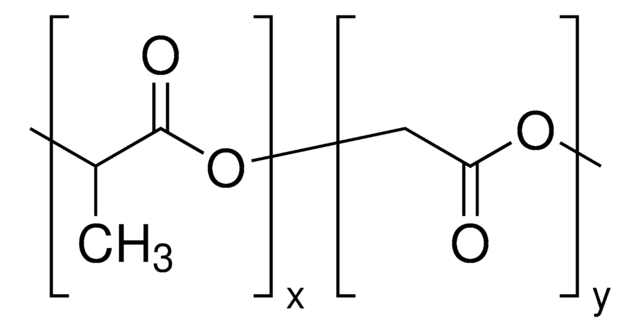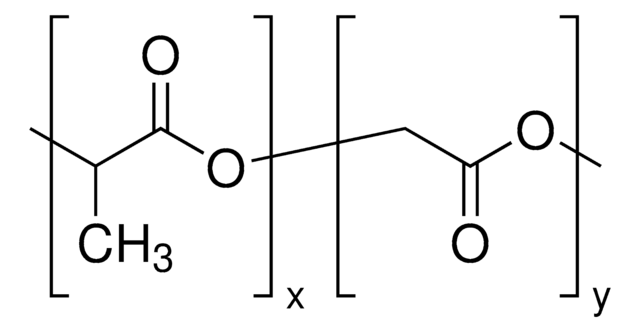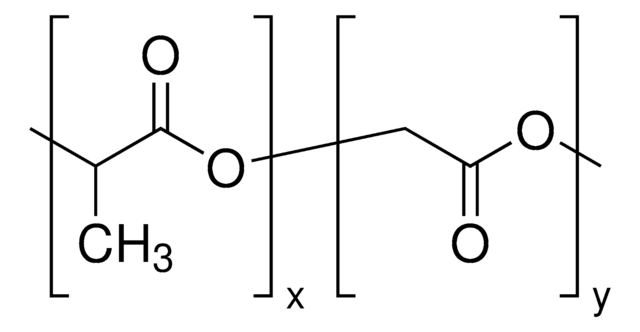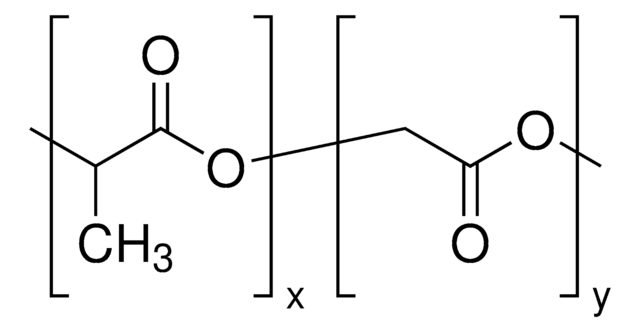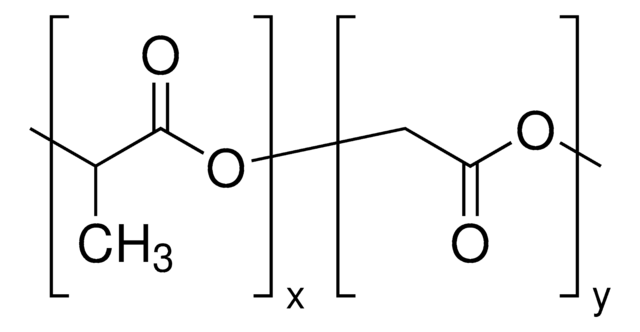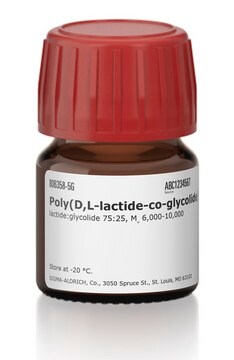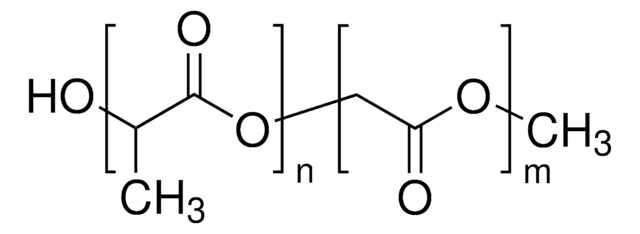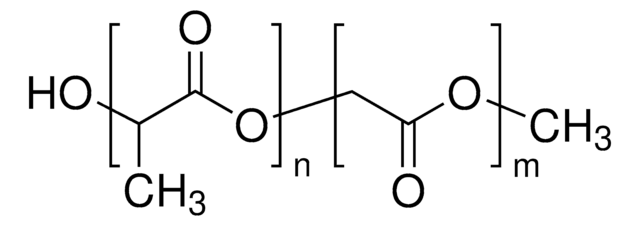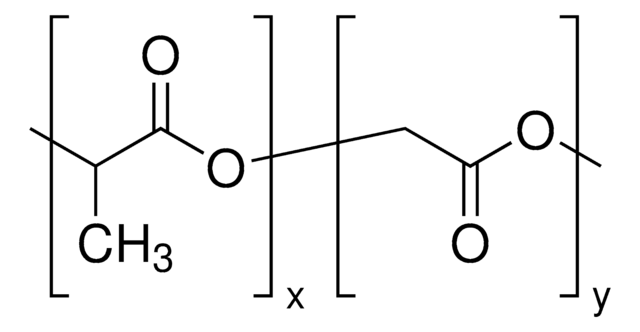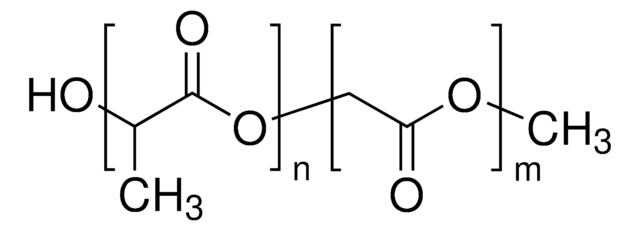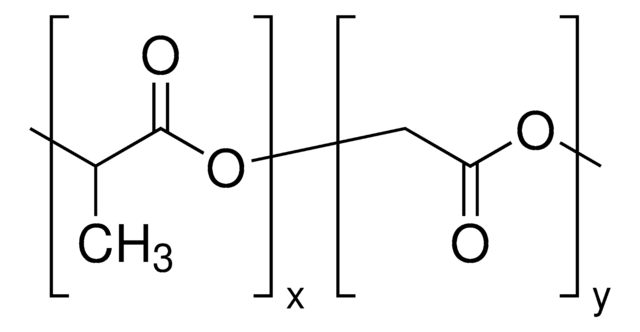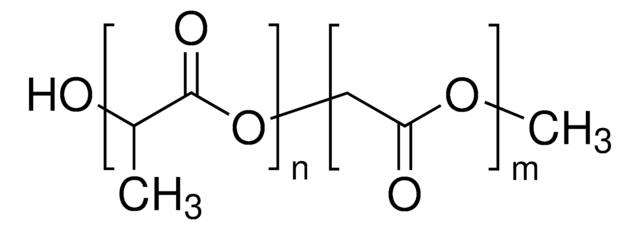P1941
Poly(D,L-lactide-co-glycolide)
lactide:glycolide (75:25), mol wt 66,000-107,000
Sinónimos:
LACTEL® B6007-1, PLGA
About This Item
Productos recomendados
Formulario
pellets
Nivel de calidad
cociente alimentación
lactide:glycolide (75:25)
mol peso
66,000-107,000
temp. de almacenamiento
−20°C
cadena SMILES
OCC(O)=O.CC(O)C(O)=O
¿Está buscando productos similares? Visita Guía de comparación de productos
Categorías relacionadas
Descripción general
Aplicación
Características y beneficios
Forma física
Información legal
Código de clase de almacenamiento
11 - Combustible Solids
Clase de riesgo para el agua (WGK)
WGK 3
Punto de inflamabilidad (°F)
Not applicable
Punto de inflamabilidad (°C)
Not applicable
Equipo de protección personal
Eyeshields, Gloves, type N95 (US)
Elija entre una de las versiones más recientes:
¿Ya tiene este producto?
Encuentre la documentación para los productos que ha comprado recientemente en la Biblioteca de documentos.
Los clientes también vieron
Artículos
Innovations in polymer technology have had a significant impact on the advancement of novel drug delivery systems.
Humankind has utilized protein materials throughout its existence, starting with the use of materials such as wool and silk for warmth and protection from the elements and continuing with the use of recombinant DNA techniques to synthesize proteins with unique and useful properties.
Nuestro equipo de científicos tiene experiencia en todas las áreas de investigación: Ciencias de la vida, Ciencia de los materiales, Síntesis química, Cromatografía, Analítica y muchas otras.
Póngase en contacto con el Servicio técnico